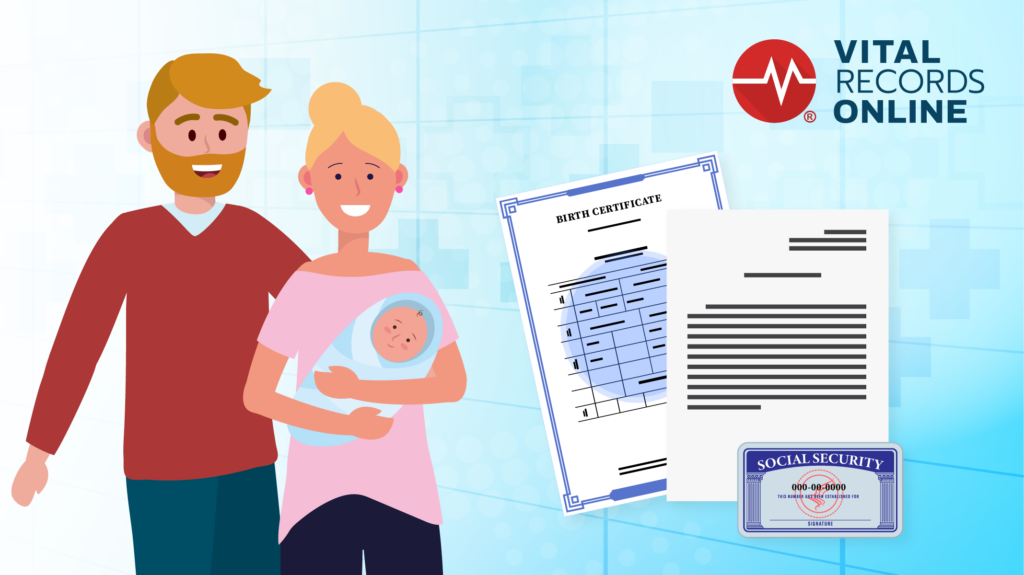Welcoming a new baby into the family is a joyous occasion, filled with excitement and new responsibilities. One crucial aspect of caring for your little one is ensuring they have access to proper healthcare. Securing health insurance for your newborn is a significant step, and this comprehensive guide aims to provide a detailed walkthrough of the process. We’ll cover various scenarios, including job-based health insurance, federal or state-based marketplace plans, Medicaid, and the Children’s Health Insurance Program (CHIP). Additionally, we’ll emphasize the vital role that the birth certificate plays in each situation and delve into the necessary documentation.
Job-Based Health Insurance
Initiating the enrollment process for your newborn under a job-based health insurance plan involves several key steps. Many employers offer a Special Enrollment Period (SEP), a window typically lasting around 30 days, during which you can add your newborn to your plan.
To begin, reach out to your employer’s Human Resources department or contact your insurance provider directly. Inform them of the new addition to your family and inquire about the specific steps for enrollment. The birth certificate of your baby is a critical document for this process, serving as proof of their age.
In addition to the birth certificate, you may need to provide additional documentation, such as your baby’s Social Security number and proof of dependency, depending on your insurance provider’s policies.
Working closely with the HR department or insurance provider, you’ll need to make necessary adjustments to your policy. This may involve completing enrollment forms, providing the required documentation, and updating information through the appropriate channels.
Federal or State-Based Marketplace Health Insurance
For those with federal or state-based marketplace health insurance, adding your new baby involves navigating a Special Enrollment Period (SEP), similar to job-based plans. Log in to the Healthcare Marketplace where you obtained your insurance and locate the section for life changes or updates.
During this process, have your baby’s birth certificate ready, as it is a fundamental document for age verification. Additionally, you may need to provide other essential information, including your baby’s Social Security number and income details if your plan is income-based.
Explore the available plans within the marketplace and choose the one that aligns with your family’s needs and financial considerations. The birth certificate will play a critical role in ensuring the precise identification of your newborn during this process.
Medicaid or Children’s Health Insurance Program (CHIP)
If you have Medicaid or CHIP coverage, the eligibility process for your newborn is often automatic. Newborns born to mothers covered by these programs generally receive automatic eligibility for the first year, with renewal processes varying by state.
Despite the automatic nature of this process, it’s imperative to contact your state’s Medicaid or CHIP office. This step ensures that your newborn’s coverage is seamlessly established and that any additional requirements or documentation can be addressed.
The birth certificate, serving as evidence of your baby’s age and identity, remains a crucial document even in automatic enrollment scenarios. While the process may not be as paperwork-intensive, having the birth certificate readily available is essential to confirm your baby’s eligibility.
Documentation Requirements
Across the various health insurance scenarios, the birth certificate stands out as a foundational document. However, the documentation requirements can extend beyond this vital record. When adding your newborn to your health insurance, be prepared to provide the following:
- Birth Certificate: Official proof of your baby’s birth, establishing their age and identity. Apply for your baby’s birth certificate here.
- Social Security Number: If your newborn does not have one already, applying for a Social Security number is typically necessary.
- Proof of Dependency: In some cases, insurance providers may require additional documentation to establish the dependency of your baby on your insurance policy. This could include legal guardianship documents or a court order.
As you navigate the complexities of health insurance enrollment for your newborn, understanding the specific processes based on your coverage type is paramount. The birth certificate emerges as a linchpin, providing age verification and ensuring the precise identification of your baby. Beyond the birth certificate, being prepared to furnish additional documentation streamlines the process and ensures a seamless transition into comprehensive health coverage for your newest family member. By recognizing the importance of these documents and following the outlined steps, you are not only meeting the administrative requirements but also nurturing a secure future for your child’s health and well-being. Parenthood is a journey, and by taking these steps, you are ensuring that your little one’s health is prioritized from the very beginning.

